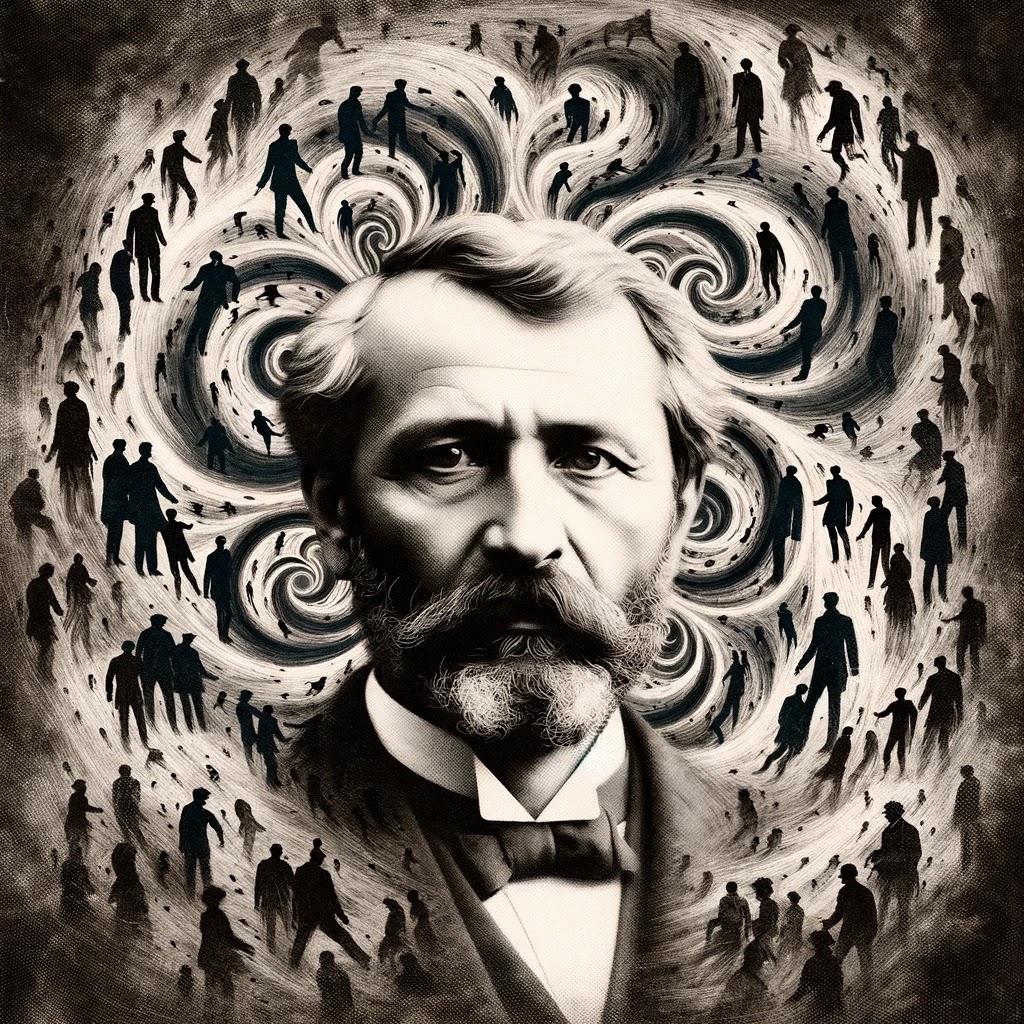
Gustave Le Bon, a pioneering figure in social psychology, offered groundbreaking insights into the behavior of crowds, fundamentally altering our understanding of mass psychology. His seminal work, “The Crowd: A Study of the Popular Mind,” published in 1895, delves into the characteristics, psychology, and dynamics of crowds, proposing that when individuals come together in a crowd, their conscious personalities diminish, and a collective mind takes over, leading to behavior that would be uncharacteristic and often irrational for them as individuals.
Le Bon suggested that crowds operate under a set of distinct psychological characteristics, including impulsiveness, irritability, incapacity to reason, absence of judgment and critical spirit, exaggeration of sentiments, and others. This collective mindset, according to Le Bon, is driven by feelings and emotions rather than by logical thought, rendering crowds susceptible to manipulation by skilled leaders. His theory outlined how leaders could exert influence over crowds, steering them with ideas and suggestions that could take root in the collective unconscious.
The concept of anonymity also plays a crucial role in Le Bon’s analysis of crowd psychology. He posited that anonymity provides to individuals a feeling of invincible power, freeing them from the constraints of social norms and personal responsibility, which can lead to acts of heroism or destructiveness that would be unthinkable for them in isolation. This deindividuation process, as later termed by social psychologists, highlights how personal identity is submerged within the crowd, leading to a decrease in self-awareness and an increase in the sense of shared identity.
Le Bon’s work on crowd psychology has had a profound influence on various fields, from sociology and psychology to political science and history, providing insights into the behavior of social movements, riots, and revolutions. His observations have paved the way for subsequent theories about group dynamics, social identity, and collective behavior. However, his work has also been subject to criticism, particularly regarding his somewhat deterministic view of crowd behavior and the potential for his theories to be employed in manipulative ways by authoritarian regimes.
Despite these criticisms, Le Bon’s contributions to the understanding of crowd behavior remain foundational. He was among the first to systematically explore the effects of group dynamics on individual behavior, offering a lens through which to examine the complexities of social life. His exploration of the psychological underpinnings of crowd actions continues to be relevant in analyzing contemporary social movements and the behavior of masses in both physical and digital spaces.
Gustave Le Bon’s exploration of crowds marked a significant advancement in our understanding of social psychology, offering profound insights into the mechanics of collective behavior. His theories, while controversial, underscore the transformative potential of crowds, highlighting the interplay between individual psychology and collective dynamics. Le Bon’s work remains a cornerstone in the study of how individuals lose their sense of self and become part of something larger, for better or for worse, within the powerful entity known as the crowd.